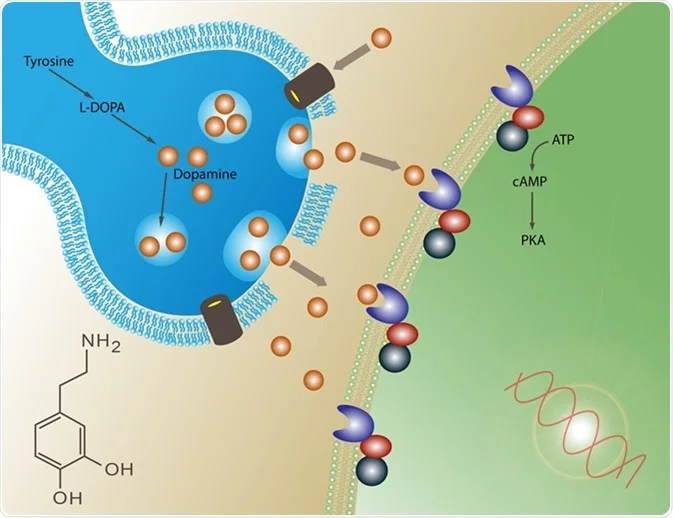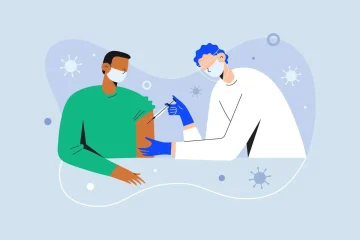At the core of addiction lies the brain’s intricate system of neurotransmitters—chemical messengers that play a crucial role in regulating mood, behavior, and cognitive functions. The interplay of these neurotransmitters is significantly altered during addiction, leading to the compulsive behaviors and intense cravings associated with substance abuse. Understanding the role of neurotransmitters in addiction treatment recovery is essential for developing an effective addiction treatment strategy that can promote long-term sobriety and overall well-being.
The Role of Key Neurotransmitters in Addiction
- Dopamine
As mentioned, dopamine is central to the brain’s reward system. In the context of addiction, repeated substance use leads to a reduction in the brain’s natural dopamine production and receptor availability. This means that individuals with addiction may find little pleasure in everyday activities and may struggle with motivation and depression when not using the substance.
During addiction recovery, one of the goals is to restore normal dopamine function. This can be achieved through various forms of addiction treatment, such as medication-assisted therapy, behavioral therapies, and lifestyle changes that naturally boost dopamine levels, like regular exercise and healthy eating.
- Serotonin
Serotonin is another neurotransmitter that plays a significant role in mood regulation, anxiety, and overall emotional well-being. Many substances, particularly stimulants like MDMA and certain antidepressants, directly affect serotonin levels. Chronic substance abuse can deplete serotonin, leading to mood disorders, anxiety, and sleep disturbances, which can complicate the recovery process.
Restoring serotonin balance is crucial in addiction recovery, as it helps stabilize mood and reduce the risk of relapse due to emotional triggers. Treatment options that address serotonin levels include selective serotonin reuptake inhibitors (SSRIs), which are commonly used to treat depression and anxiety, as well as holistic approaches like mindfulness meditation and adequate sunlight exposure.
- GABA and Glutamate
GABA is the brain’s primary inhibitory neurotransmitter, meaning it helps calm the nervous system and reduce neural activity. In contrast, glutamate is an excitatory neurotransmitter that promotes neural activity. A healthy balance between GABA and glutamate is essential for maintaining proper brain function.
Many addictive substances, such as alcohol and benzodiazepines, increase GABA activity, leading to the calming effects that users seek. However, with prolonged use, the brain adapts by reducing its natural GABA production, leading to heightened anxiety, insomnia, and irritability during withdrawal. Conversely, substances that increase glutamate activity can lead to overstimulation of the brain, contributing to anxiety, stress, and even seizures.
In addiction recovery, treatment may involve medications that help rebalance GABA and glutamate levels, reducing withdrawal symptoms and stabilizing the nervous system. Additionally, therapies that promote relaxation and stress reduction, such as yoga and deep breathing exercises, can support the restoration of GABA and glutamate balance.
Through a combination of medication-assisted treatment, behavioral therapies, and holistic approaches, individuals can restore neurotransmitter balance, improve mental and emotional well-being, and achieve long-term recovery. As research in this field continues to advance, our understanding of neurotransmitters in addiction recovery will further enhance the effectiveness of treatment strategies, offering hope and healing to those affected by addiction.




